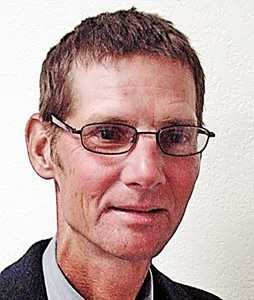Today Tucson voters will weigh in on a number of ballot measures and elect new members to the City Council. To help students sort through the candidates and issues, the Daily Wildcat’s Brian Mori compiled this guide.
City Council Race:
Ward 3 (North Side)
Incumbent Karin Uhlich (D)
Major issues: Small business growth, restructuring of land use code, and Transparency in government
Elected in 2005
Former Aide to Michigan Congressman
Director Southwest Center for Economic Integrity
Background in grass roots activism and social services
Ben Buhler-Garcia (R)
Major Issues: “”Police and potholes, public safety and jobs””
Metro Tucson Chamber of Commerce Military Affairs
Tucson Industrial Development Authority
Fox Theatre Foundation
Business Consultant
Supporter of Public Safety First Initiative, Prop. 200
Has called for Rio Nuevo audit and does not believe City Council prioritizes public safety
Mary DeCamp (G)
Major Issues: Energy, sustainability, economy, and global warming
Instructor and PhD. Student at the University of Arizona
Founding member of Tucson Life Cache, a localized merchant trade currency
Energy retrofitting for Tucson
Asked voters not to fund Public Safety Initiative, Prop 200
Ward 5 (South Side)
Richard Fimbres (D)
Major Issues: Tourism, Downtown Development, Government Efficiency
Tucson (Ward 5) native
Former Pima County Sheriff’s Deputy
Former Director of Governors Office of Highway Safety
Pima Community College Governing Board
Has suggested government can go paperless
Shaun McClusky (R)
Major Issues: Public safety, downtown/business development, mass transit
Tucson Realtor and business owner
Fomer Air Force member
Career background in economics and business
Former assistant to Donald Trump
Supporter of Public Safety First Initiative, Prop. 200 (Promised not to raise taxes)
Ward 6 (Midtown, including University of Arizona)
Steve Kozachick (R)
Major Issues: Rehabilitating relationship between private and public sector, public safety
Director of Athletics for Facilities and Project Management
Establishing student housing corridor between UA and Downtown
Supporter of Public Safety First Initiative, Prop. 200
Incumbent Nina Trasoff (D)
Major Issues: Jobs, downtown and economic development (downtown hotel project), arts and education, restructuring of land-use code.
Elected in 2005
Native of New York
Fomer KGUN 9 reporter
The Initiatives
200 – Public Safety First
A statutory enforcement of already agreed upon police staffing levels and fire department minimum response times to be written into the city charter. Proposition 200 would change the city charter to require 2.4 officers per every 1000 citizens in the City of Tucson, and require the city-wide average fire department response time to be under 4 minutes, the standard set forth by the National Fire Protection Association. The city will have five years to achieve this goal. There is no source of funding included in the proposition to allow for the city to maintain these numbers.
Major supporters: Tucson Association of Realtors, Tucson Police Officers Association, Tucson Fire Department Association.
Their arguments: Supporters say the City Council cannot be trusted to carry out its own 2006 Sustainability Plan which provides 10 years to achieve both goals. They insist the money necessary to achieve the goals is already in the city budget and can be utilized if the city cuts non-essential services like after school programs and funding for non-profit organizations and outside agencies like the Metro Tucson Visitors and Conventions Bureau and Tucson Regional Economics Organziation.
Major opponents: Don’t Handcuff Tucson – No on 200, Pima County Taxpayers Association, Tucson Metropolitan Chamber of Commerce.
Their arguments: Opponents say the initiative is redundant and financially irresponsible. They insist the city has demonstrated its commitment to public safety by hiring 80 new police officers since 2006 and renovating the West Side Police Services Center. Though further hiring has stopped due to the recession, all three democratic Council members have promised that public safety is the top priority of the city government. Opponents insist that a numerical standard in the city charter will cripple the council’s discretion over the budget and bankrupt other city services.
400 – Home Rule
The City Council has control over only $420 million of next year’s $1.3 billion budget. The legislature caps the spending of all Arizona cities according to revenue and growth levels. According to numbers listed in the online version of the proposition, 400 will allow the city to spend about $42 million more or what it already has projected to collect through 2014, rather than having to put that money into savings. The city has a $46 million deficit for 2010.
Major Supporters: While there are no organized campaigns for or against the proposition, it was created by the Tucson City Council. The Tucson Association of Realtors.
Their Arguments: 400 will not require a tax or city fee increase. 400 gives the city complete local control over its budget and allows the city to replace some of the services that have been cut due to the city’s and state’s financial crisis.
Major Opponents: There is no formal opposition to 400 though some citizens and online blogs have revealed concerns that the city should be putting money into savings during the economic recession. Arizona College Republicans State Chair Andrew Clark said in an interview last week speaking on his own behalf that he would vote against the measure because he thinks the worst of the recession may still be to come.









